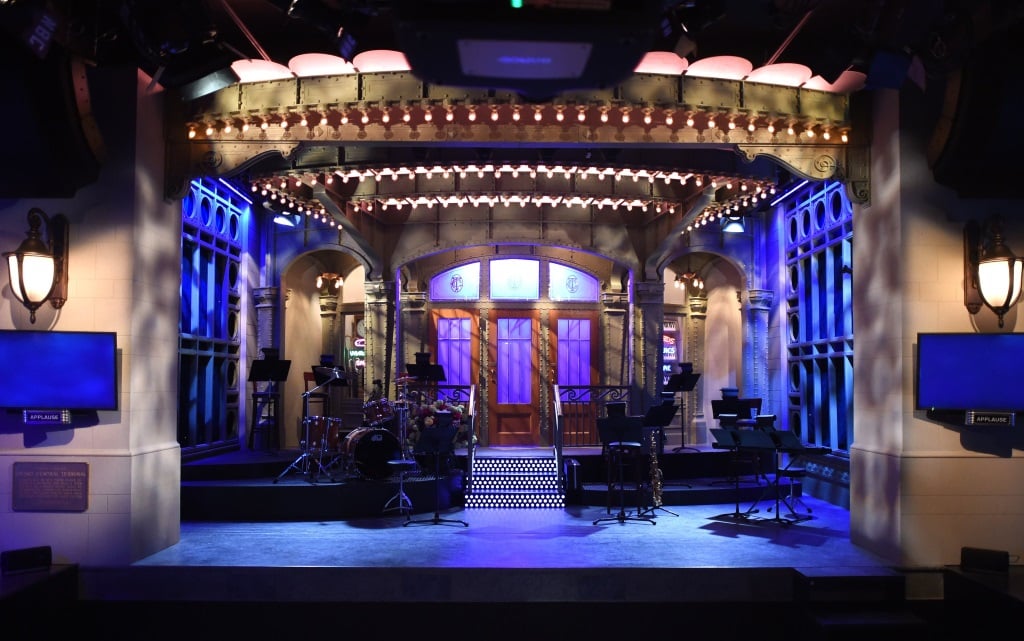
"NBC Boss on the Hiring and Firing By 'Saturday Night Live' of Comedian Shane Gillis Over Racial Slur Controversy" (Deadline)
"Can 'SNL' prevent another Shane Gillis-style firing? Vetting can be 'triggering,' NBC says" (USA Today)
SNL's Youtube Channel
If you don't already know, Saturday Night Live is a late-night television comedy show from New York that parodies contemporary culture and politics, as we've seen with the Schoolhouse Rock parody in class last semester. Celebrities come to host the shows and participate in comedy sketches, and many notable comedians have spent their time as part of the cast of SNL in the past, including figures like Tina Fey, Jimmy Fallon, and Will Ferrell. Last fall, SNL hired three new comedians to their cast, one of which was the first Asian-American SNL cast member, Bowen Yang. The same day Yang was cast, a 2018 Youtube video depicting Shane Gillis (one of the new members) using a racial slur against Asians surfaced, triggering several days of outcry from the public. Gillis was promptly fired.
NBC Chairman Paul Telegdy was recently asked about the scandal and now acknowledges the need to do better background checks on the performers' pasts. He also discussed the fine line/gray area between the right to free speech and what we should hold comedians accountable for. As a frequent viewer, there have also been times where I've wondered if some of the skits on SNL were going too far. SNL's political sketches are very entertaining (in my opinion), but I do think that at some point, there is a line comedians should not cross, especially in very controversial or touchy areas like race. It's nice if the company does background checks on the comedians, but it should ultimately be the comedians' responsibility to reflect and keep themselves in check.
On a more unrelated note, do you watch SNL? If so, what is/are your favorite sketch or sketches?
2 comments:
I also do love watching SNL - one of my friends introduced it to me a few years ago. I think I also enjoy the political sketches and the weekend update parts since all the jokes are satirical and it's hilarious. In regards to this scandal, this reminds me of when Kevin Hart posted homophobic tweets around 2009-2011 and had lots of backlash on social media. He finally decided to step down but he did make the effort to formally apologize to the public and the academy. It is definitely important to have background checks on comedians but I think if they show how they realized that their past jokes hurt others and made a formal apology, well before receiving comical roles in movies to hosting prestigious award shows, then I would give these people another chance.
I personally love SNL. I think it's pretty hilarious, and I love that the guest stars are so into it. One sketch that I remember really well (and relates to this pretty well???) is the one called something like "the day Beyoncé went black.¨ Immediately you're like wtf man, but it's just ridiculous. This is an example of a more mellow racial joke/skit (?), but there are levels to this kind of thing, I think. I personally enjoy "dark humor," but I know many people find it straight up offensive or inappropriate as well. Unfortunately, this is a very difficult topic to talk about (I've actually had a lot of conversations about this with my friends); there is the whole free speech thing, but that freedom should only extend so far, right? Like, hate speech isn't ok, and you can get in a lot of trouble for participating in it. But does that violate our right to free speech? And when it comes to comedy, people joke about basically everything; I know I joke about a lot of things, and can make people uncomfortable. My reason is that I find joking about things, even very serious topics, can take the serious-ness out of a situation, which I like because serious is so hard for me. On the other hand, I have friends who think the jokes I make can be totally uncalled for, and straight up offensive. I think what is important in these situations is to be open-minded and know your audience. I think if you are making jokes that can be considered offensive, you have to be aware of the response, as well as willing to discuss the problem in a civil manner. Of course, I also think there is a line, and can be offended by jokes. But those people are probably in the same situation I'm in when I make jokes that offend people. It's very complicated in my opinion.
Post a Comment